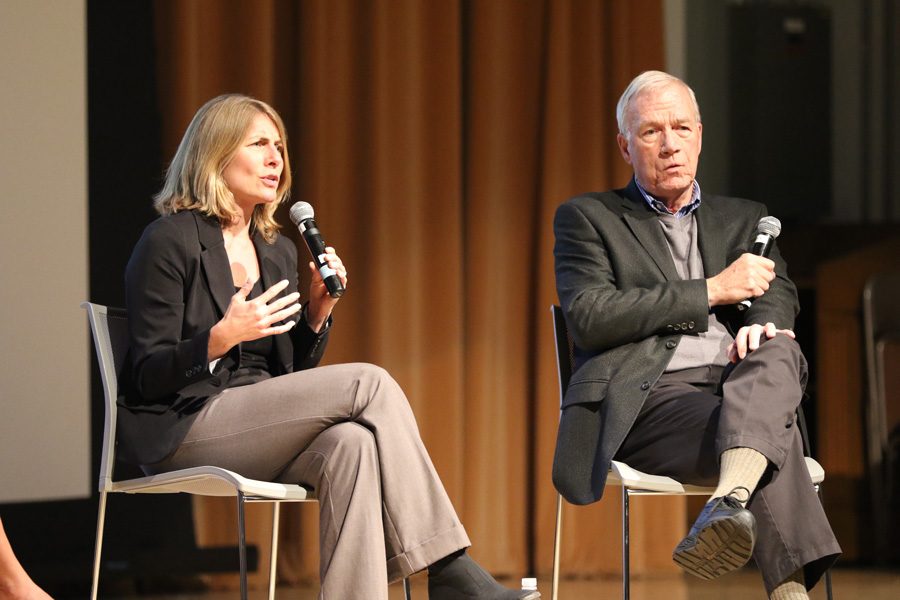‘spotlight’ Reporters Talk Impact of Investigative Journalism
Daily Northwestern
Journalists Walter Robinson and Sacha Pfeiffer, winners of the Pulitzer Prize for their Boston Globe series that uncovered Roman Catholic Church sexual abuse cases, said they never expected to discover such deep networks of corruption when they first started working on the story. Last year, their work was adapted into the Academy Award-winning film “Spotlight.” Robinson and Pfeiffer spoke Tuesday night to about 250 students after a screening of the film hosted by A&O Productions and Studio 22. During the Q&A session, moderated by Medill Prof. Mei-Ling Hopgood, Robinson and Pfeiffer spoke about their experiences writing the story and collaborating with the film’s actors and creators more than a decade after. “This may be … perhaps the first major investigative story of the Internet age,” Robinson said. “It went viral. Within a day or two we were getting phone calls and emails literally from all over the world … the story just exploded.” In the film, Michael Keaton plays Robinson, who led the Boston Globe’s 2002 coverage of the scandal, which resulted in international outrage against the Catholic Church and the resignation of Boston’s Archbishop. Rachel McAdams plays Pfeiffer, a portrayal the journalist said was “uncanny.” Pfeiffer said the film reminded her of the power of Hollywood because she continues to receive emails from viewers worldwide who might have been unaware of the scandal before, even though the story was published more than a decade ago. Even the Catholic Church, she said, had a more positive reaction to the film than to the original story. “The church has embraced a movie in a way that it didn’t embrace our story a decade ago,” she said. Raised in a devout Catholic family, Pfeiffer said her upbringing helped her understand why people would choose to ignore these sexual abuse cases. “After the story ran, my grandma, who was depicted in the movie, said to me ‘You know, we all thought the priests were little gods,’” Pfeiffer said. “I remember thinking, ‘Well, that’s exactly why it happened,’ because when you think priests are gods … you’ll be willing to look the other way.” Though the journalists said the movie made some of the investigative parts of their reporting seem more interesting by fast-forwarding scenes where they were doing “tedious” research, they emphasized the importance of investigative journalism. They said their series gave a voice to sexual abuse victims who previously hadn’t had a way to share their stories. Robinson encouraged students to become reporters and said journalism is a good way to effect change. “You don’t need someone to drop a dime to find a good story, you just need to go out and talk to people,” he said. “Particularly, you need to go out and talk to people who are victimized by society.” Communication freshman Andrew Harlan said he had never seen the film before, but was shocked by the movie’s list of places worldwide where the Catholic Church had been involved in cases where abuse by priests were concealed, which is shown before the credits. “I’m from Peoria, Illinois, and my city was on the list,” Harlan, who is Catholic, said. “It is mind-blowing that it is happening all over the world and also really inspiring that they had the courage to question the institution.”
|
.
Any original material on these pages is copyright © BishopAccountability.org 2004. Reproduce freely with attribution.
